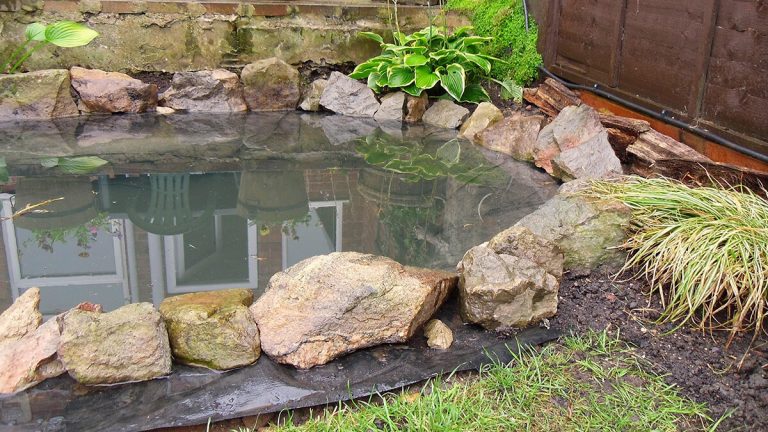Is it necessary to hire an expert to clean a natural lake?
A natural lake in the garden can be a real asset. Especially if there are fish and other aquatic creatures in it, gravel on the bottom, underwater plants, trees and flowers in the area. Unlike an artificial lake or pool, a natural lake or pool is beneficial not only to you, but also to the animals and plants around you. Swimming in a natural lake or pool is a much more suitable option for your health, primarily because it excludes the use of chlorine and other water cleaning agents. A natural lake can blend perfectly with its surroundings and enhance it in a wonderful way. Natural pools and lakes as a habitat for wild flora and fauna will also reduce your maintenance costs, since the eco system will do almost everything by itself. However, if there is an imbalance, the self-cleaning power fails. The result is pollution that must be removed. Since the ecosystem is very complex, the wrong approach can lead to permanent damage, which endangers the flora and fauna. For this reason, cleaning a natural lake often requires special tools and equipment. In order to achieve the best effect of cleaning a natural lake, it is recommended to leave the cleaning to a professional.
What should be considered when cleaning a natural lake?
Sludge at the bottom is one of the most common types of pollution. If the balance of nature is disturbed, more silt is formed, which negatively affects water quality. Special vacuums for sludge are used to remove sludge. The water should be pre-filtered so that the suction works better. Modern filters usually have three stages, mechanical, biological and chemical. In the first step, the coarsest dirt is filtered, then the sludge is collected, which is chemically decomposed. If you decide to clean the natural lake yourself, you need to be careful with the use of chemical cleaning agents. Look for advice in specialized stores which chemical agents you can use without disturbing the natural balance.
What are the benefits of cleaning a natural lake?
If the lake is turbid, it can have major consequences for the water body. In the worst case, the pH value of the water goes out of balance and the lake dies. Life in a cloudy and polluted lake is not possible. Plants and animals die, and cloudy water can pollute the surrounding area in your garden. In addition, a cloudy lake spoils the appearance of your garden. It can take months and years before the water table is restored. Therefore, it is necessary to take precautions and regularly maintain and clean the natural lake.
What should be done before cleaning a natural lake?
 Clean up a natural lake Before cleaning a natural lake, it would be a good idea to do a water test. In this way, you will know exactly which method of cleaning the lake should be applied. Before starting the works, animals and plants from the lake must be moved to another habitat. Care must be taken when moving animals and plants because they must be moved to a habitat that suits their needs.
Clean up a natural lake Before cleaning a natural lake, it would be a good idea to do a water test. In this way, you will know exactly which method of cleaning the lake should be applied. Before starting the works, animals and plants from the lake must be moved to another habitat. Care must be taken when moving animals and plants because they must be moved to a habitat that suits their needs.
When is the right time to clean a natural lake?
The best period to clean a natural lake is in the spring, when it is necessary to clean other impurities that have formed during the winter in the lake. The silt should be removed before returning the animals and plants to the lake. You should clean the mud both in the summer and in the fall, when the water also becomes cloudy. You can collect the sludge with special vacuum cleaners, or in the case of very small lakes, you can do it with a bucket and a shovel. Another option is to remove the sludge with a mini excavator. Be extremely careful when doing this.
How long does it take to clean a natural lake?
It may take you several days to clean a natural pond. If you want to speed up the work and save time, leave the work to a professional.
How much money should I set aside for an expert to clean a natural lake?
Costs can vary and depend on various factors, such as the size of the lake and the type of pollution. In order to find a good deal, it is advisable to get various offers in advance and compare prices.





